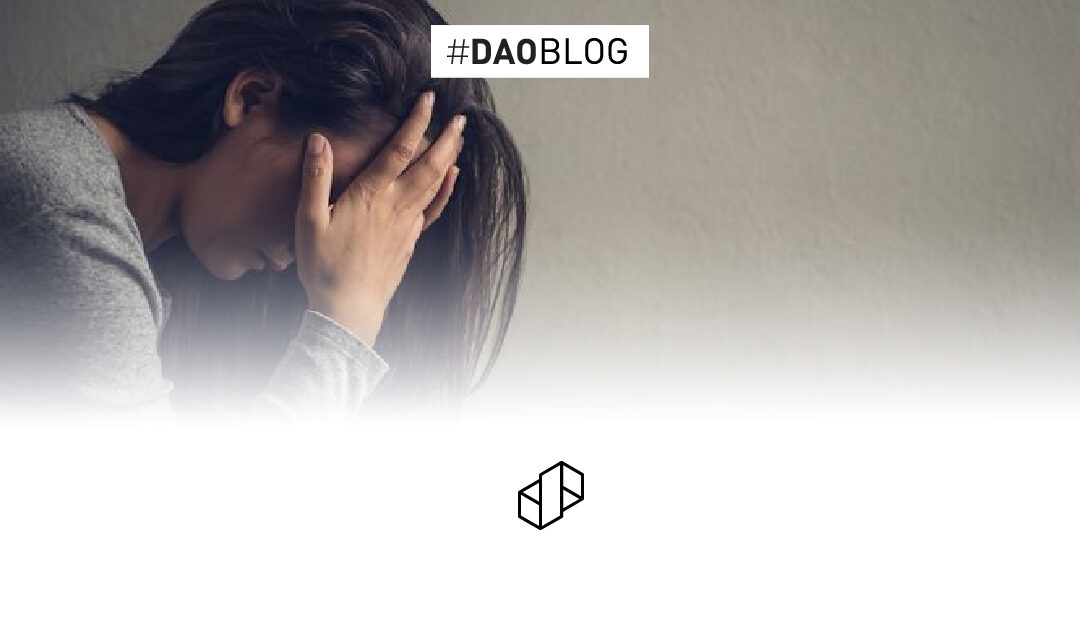Most of us spend a large chunk of our day vis-à-vis our life at work. At the very least, a minimum of 8 hours is spent at work in a regular corporate job. Consequently, it becomes evident that our work environments and work-family significantly impact us. Prolonged workplace stressors can lead to numerous diseases and disorders. On top of that, we now have the COVID-19 pandemic, because of which people have been forced to make unprecedented lifestyle changes.
There is no denying that we Pakistani’s are strong and resilient because of our ability to thrive despite extreme pressure, sometimes due to the unavailability of basic privileges. Still, everyone cracks at times, especially post-COVID. Three out of four Pakistani adults are now suffering from moderate or high levels of stress1. We are not alone. In the US, stress is believed to have been responsible for more than $200 billion in annual loss2. Many are unaware of their stress, while others think they can do nothing about it. That is incorrect. So, the question is, what can we do about it?
1. Multitask work but first….. always prioritize yourself
A heavy workload and long hours result in over-burdened, over-tired, and, consequently, stressed employees. Conflicting deadlines and responsibilities can cause mental overloads. Even if a person is an excellent multi-tasker, that laundry list of things that have to be done would still occupy a portion of their mind and cause stress. When employees are overburdened with work, that stress eventually translates into resentment, which leads to underwhelming results.
Solution?
The solution to this is quite simple. Prioritize your work/tasks. During multitasking, even though you are doing one thing at a specific moment, you are switching between multiple tasks in more extended periods, and the work produced may not be as sublime. If you set priorities and work on one task at a time, you will be aware of all of your points of view.
Furthermore, breaking down projects into smaller chunks can also be helpful. Instead of trying to complete one big task, you can break that down into different steps and proceed to complete one step at a time. While multitasking, it also helps categorize the tasks in terms of urgency and importance. Most of us have forgotten that it is okay to put ourselves and prioritize our well-being first as well.
2. Set realistic deadlines.
There’s very little or no stress involved when driving towards a nice restaurant, even if you may be a little late. On the other hand, going to the bus station, however, knowing that you will miss your bus, can be an anxiously stress-inducing journey if you do not get there in 30 minutes. Likewise, setting unrealistic deadlines is a leading cause of employee stress.
Solution?
Setting deadlines is essential as they eliminate uncertainty about when something needs to be done. However, it is also vital to set realistic and achievable deadlines. Otherwise, work will be done hastily, resulting in half-baked work, delays, and a stressed-out team. It is easy to stretch ourselves thin and take on more than our capacity to avoid future conflict, but that leads to burnout in the long run. A tried and tested method is to pace ourselves and remember that we cannot get it all done at times – that’s okay.
3. There is no substitute for clarity.
People like to know where they stand. They want to clearly understand what is expected of them. Ambiguity brings about uncertainty, which leads to stress and anxiety.
Solution?
As Steve Jobs quotes: “Clarity is priceless.” It is crucial to be specific with what you require. If there is any sort of confusion, ask before initiating any task. It is essential to be a better communicator and invite others to communicate clearly. Be it through email, SMS, verbally, or social media, keeping all stakeholders up to date with the progress and its requirements is necessary. Each medium has its own pros and cons, and you can choose any of them depending upon the work that needs to be done. Regardless of the channel, it must be ensured that viable communication is established and done consistently, precisely, and on time.
4. Integrate independence with interdependence
When people do not possess the right skill set for the task they take up or are assigned, they get stressed out. What might be a piece of cake for one person may not be the same for another.
Solution?
It is crucial to foster an environment where asking for help is not considered taboo. People should not fear bringing up their lack of expertise. If they struggle in silence, then not only will the project suffer, but the person will also be severely stressed. However, this does not imply that people shouldn’t step out of their comfort zones and work on something new. It simply means that if someone is unable to work on something for one reason or another, they should comfortably be able to ask their superiors or other relevant experts for advice when required. We are all in this together.
5. Each day, focus on getting 1% better = 37.78 times improvement in a year.
Some people tend to get bored quickly. They lose interest, which causes them to stress out and crave change. On the other hand, for most people, change itself causes stress. Things such as changing a job, city, school, etc., can be very stressful for some people.
Solution?
Positive thinking. It may sound cliche, but it is practical, indeed. Conduct a cost-benefit analysis of the change required. If the benefits outweigh the costs, go for it. If the change is inevitable, focus on the benefits of that change and tackle the costs head-on.
6. Embrace fearlessness and self-belief.
Uncertainty is perhaps the most common reason for workplace stress. The future is uncertain, and uncertainty causes stress. People tend to worry about events that may happen in the future and affect their lives.
Solution?
Aim for the best-case scenario while planning for worse-off outcomes. Keep the faith strong, and remember that the only way to take away the power of something we fear is to confront it by not limiting ourselves. Try not to ponder over outcomes that are not in your control and divert that energy somewhere fruitful. This lets you be productive while also enjoying the journey.
7. Every problem has a solution (two sides of the same coin)
People may feel like they do not have enough control over certain situations. They might also feel like they cannot apply their solution to a problem.
Solution?
The solution to this issue is two-pronged. Does the problem have a solution?
- If yes, then there is no reason to be stressed; just apply the solution.
- If not, then worrying about that situation will only slow down your finding of an alternative solution.
It is a fact that stress affects our cognitive abilities and also our decision-making capacity; therefore, one should try instilling a solution-orientated mindset. Finding people closer to the problem might know how to go about that problem. For example, a receptionist will know better how to deal with a lousy guest than a CEO.
8. Make yourself at home
People get stressed when they don’t feel good about themselves. Some may resort to instant gratification methods such as smoking, eating junk food, and spending too much time on social media to feel good about themselves. These methods only worsen stress rather than eliminate it in the longer run. The well-being of an employee is paramount. The way they are feeling affects their work and the entire company’s performance.
Solution?
It is crucial to create an environment where employees feel comfortable sharing their personal problems. Building that trust will make sure that people can open up about their issues, which can be addressed mutually. This, in turn, will make your employees more loyal and make the company a better place. Find the time for yourself, do something fun daily, even if it’s for 5 minutes a day. Meditate, go for a walk, or the gym, or connect with the nature around us, whatever it is, just find something that provides inner peace.
Conclusion
In a snapshot…different people get stressed differently, so finding what helps is an internal journey. That is why it is a complex topic to tackle. However, being aware of these factors is undoubtedly the right direction towards working on these issues. We, at DAO PropTech, take employee well-being and taboo issues such as stress very seriously. We have also become a part of the global movement to address stress through easy but implementable steps. One of our initiatives is to conduct regular speaker sessions which include some well-renowned personalities. Some key takeaways from one of the sessions included:
- Use the daily reset rule regardless of what kind of day you had
- Do not let a bad day become a bad week
- Fail but fail fast
Last but not least, self-awareness and mindfulness are some of the critical drivers of emotional intelligence, which provide us with the compassion necessary for our personal and professional relationships. Always appreciate someone trying to change and make improvements because many of us need that little extra cheerleading to keep going.
References:
Aku.edu. 2022. Study finds high levels of pandemic stress and anxiety
Portal.fdu.edu. 2022. Stress in the Workplace: A Costly Epidemic

Esa Imran
Digital & Communications Specialist


 Book a Meeting
Book a Meeting